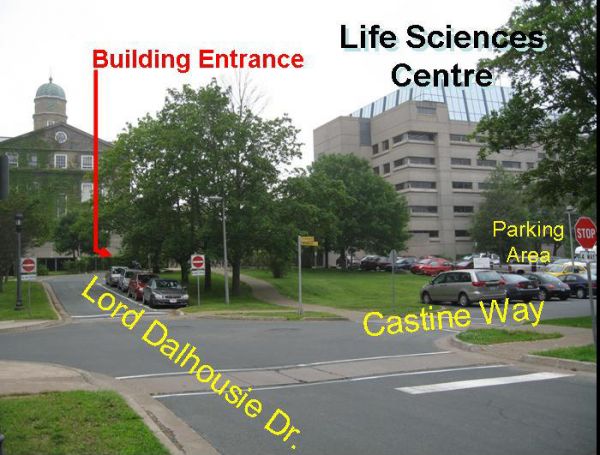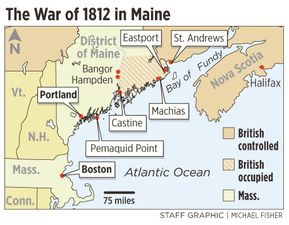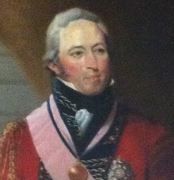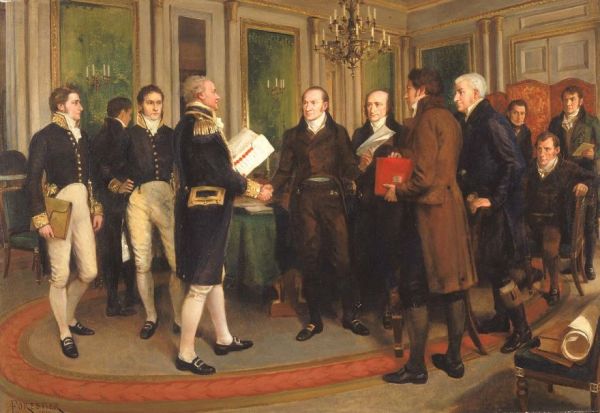
 After
Napoleon abdicated in 1814, Britain began a series of offensives
designed to bring about victory over the Americans in the War of 1812.
Among them was an invasion of eastern Maine in the summer of 1814. British forces conquered the area fairly easily.
After
Napoleon abdicated in 1814, Britain began a series of offensives
designed to bring about victory over the Americans in the War of 1812.
Among them was an invasion of eastern Maine in the summer of 1814. British forces conquered the area fairly easily. Naval
expeditions under Sir John Sherbrooke (left) and his subordinates
captured the coastal towns of Eastport, Machias and Castine, then sailed
inland up the Penobscot River, capturing Hampden and Bangor. Sherbrooke
declared that Maine east of the Penobscot was now a British colony
named New Ireland.
Naval
expeditions under Sir John Sherbrooke (left) and his subordinates
captured the coastal towns of Eastport, Machias and Castine, then sailed
inland up the Penobscot River, capturing Hampden and Bangor. Sherbrooke
declared that Maine east of the Penobscot was now a British colony
named New Ireland.The British goals in the establishment of New Ireland were:
1. to create a buffer zone between the United States and the Maritime provinces.
2. to acquire land for an overload route between Quebec and the Maritimes.
3. to punish the Americans for going to war.
Meanwhile, the rest of the British offensives ended in failure. At Plattsburgh, New York, the US Navy defeated an invasion of New York down the Lake Champlain corridor. In the Chesapeake, the British burned Washington, but were unable to advance into and past Baltimore.

In the Flemish city of Ghent, British and American negotiators were at an impasse. The British were in a superior military position, but the Americans would not accept anything less than status quo ante bellum--the conditions that existed before the war. After the Duke of Wellington advised the British to accept the American position, the British signed the peace treaty (pictured above). The treaty, after ratification by the Prince Regent and United States Senate, officially ended the war.
It also ended New Ireland and John Sherbrooke’s ambitions for eastern Maine. He withdrew. But he had treated the area as British territory and collected £10,750 in tariffs during that time. Sherbrooke donated most of it to the founding of a university in Nova Scotia. The “Castine Fund,” named after the occupied town of Castine, Maine, launched Dalhousie University.
The university named a road on its campus after its unwilling financial benefactor. That’s how Castine Way got its name.

No comments:
Post a Comment